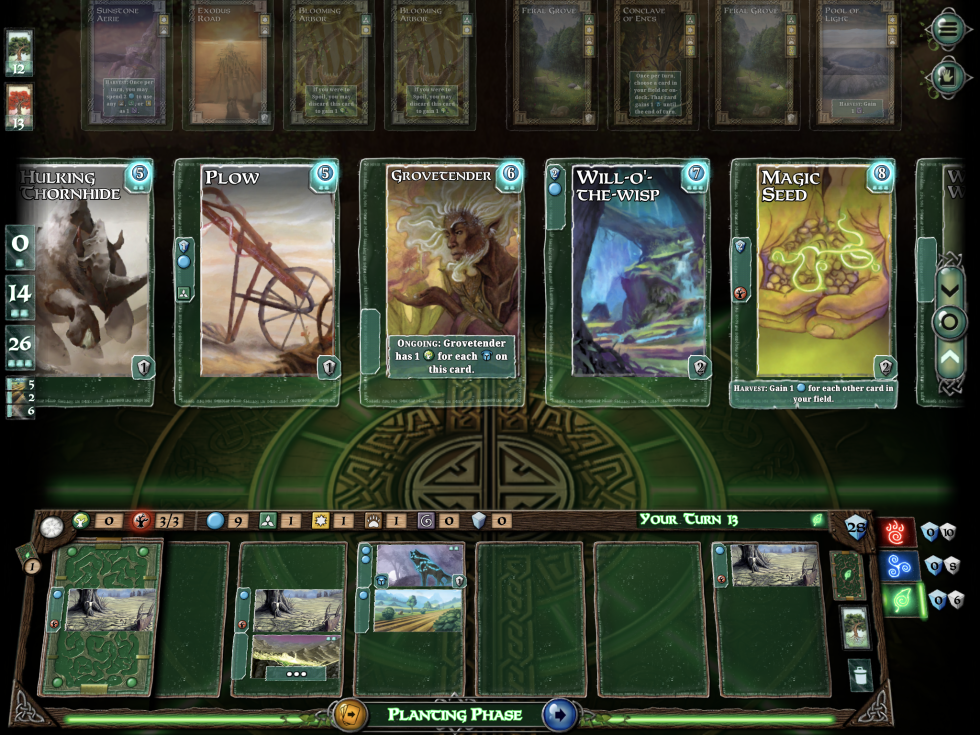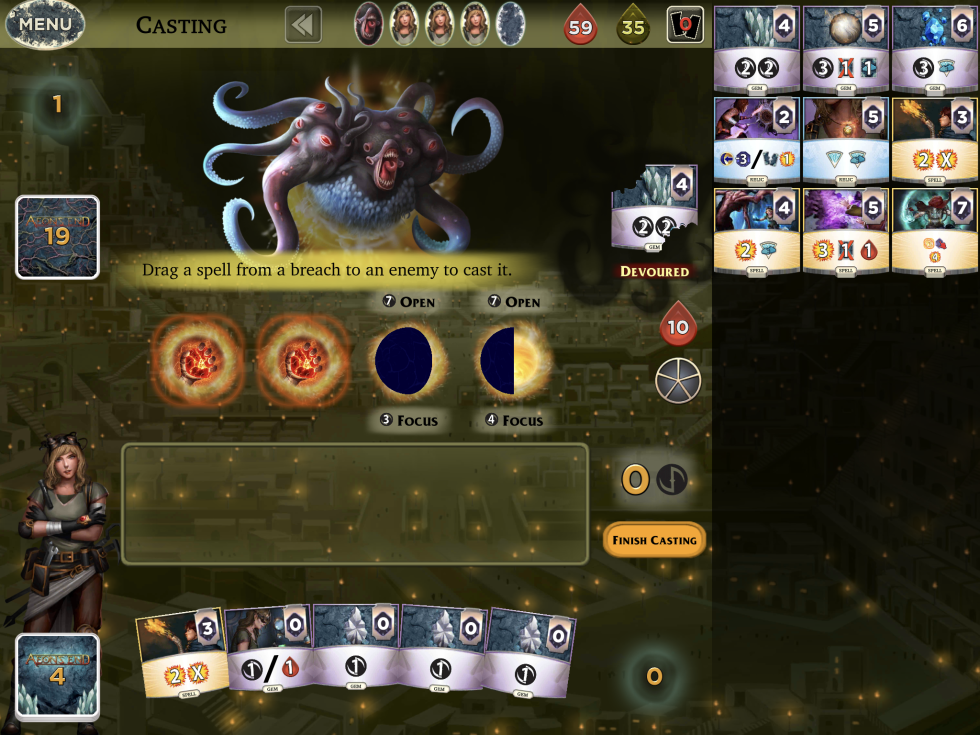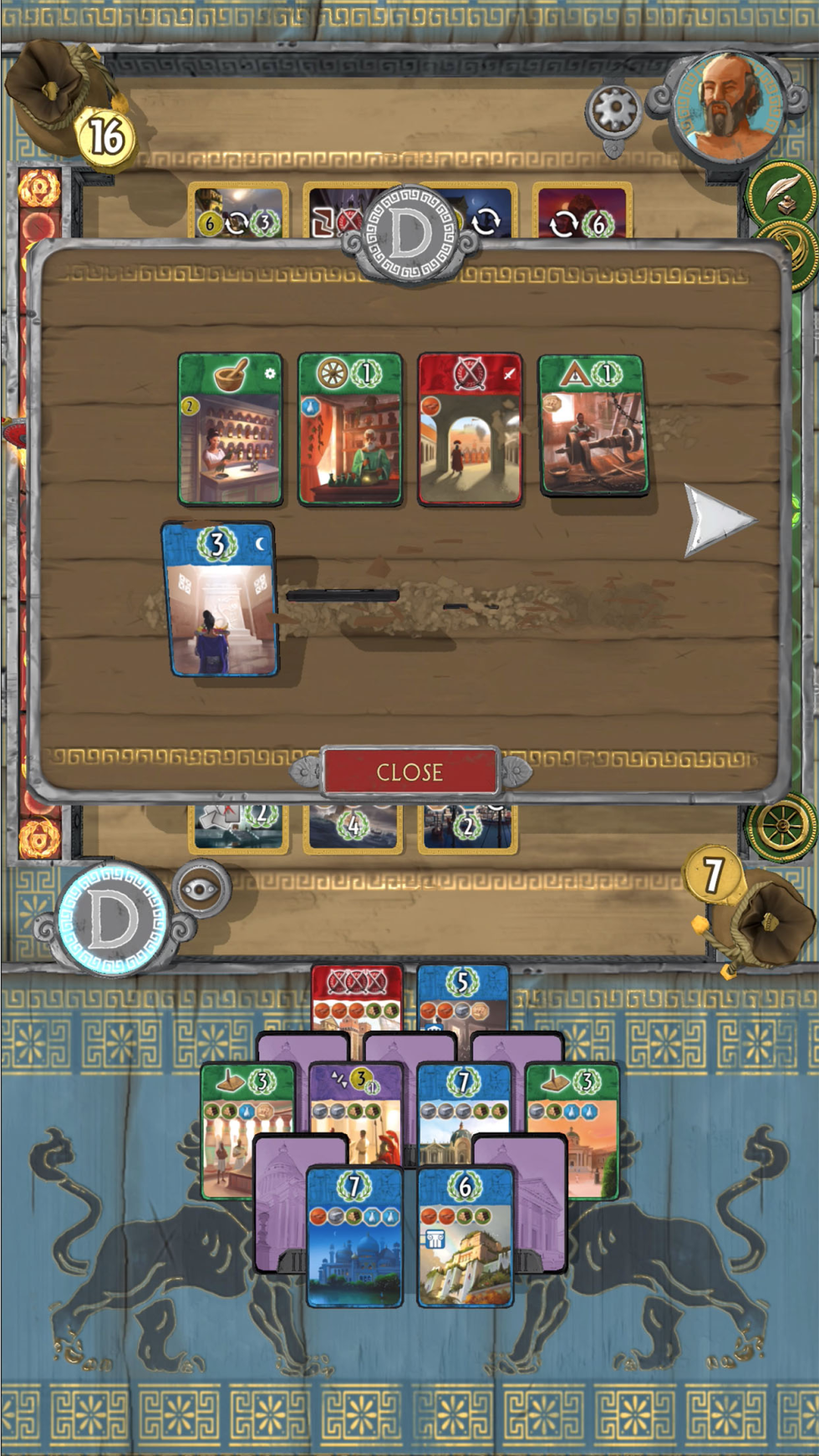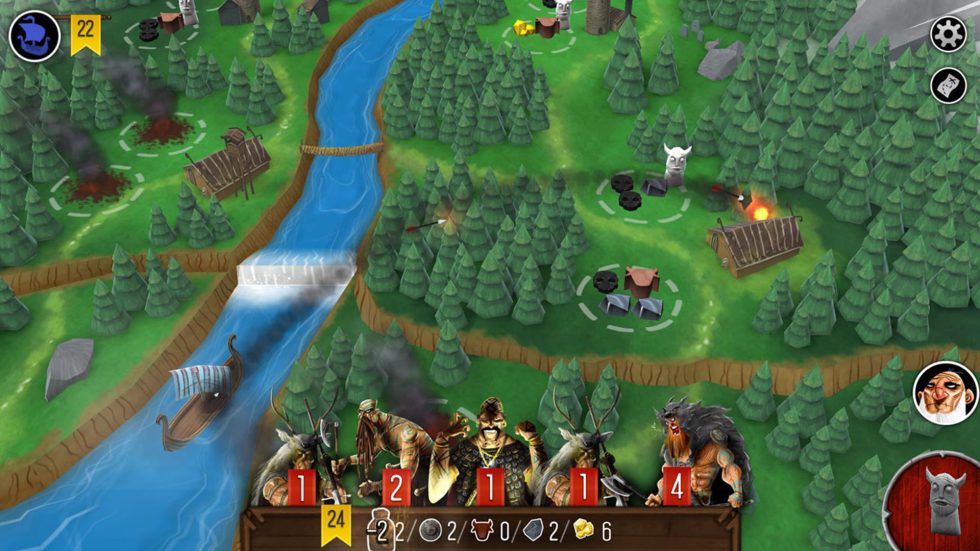Tabletop games continue their push into the electronic space, with at least a dozen digital adaptations released in 2019—and that’s not counting the numerous games in Early Access (like Gloomhaven) or approaching beta (Charterstone). Below, I’ve ranked my eight best of the year based on app quality, play experience, and purchase price.
Other games were either too buggy or just not good enough to include. I’ll give an honorable mention to Takenoko, which was released in early December and looks fantastic... but is just too buggy to recommend right now. For example, if you switch out of the app mid-game, the app usually restarts and loses your progress, and the app requires you to tap too many times during AI opponents’ moves. (Surprisingly, it’s from Asmodee Digital, who typically does such great and bug-free work, so I expect these problems will eventually be resolved, but for now I’d say hold off on purchasing even if you love the tabletop version.)
But these eight are each worth your time. We’ll kick things off with...
8. Mystic Vale (Nomad Games)

Mystic Vale is a “card-crafting” deckbuilder, where you buy cards from the market and use them to enhance cards that are already in your deck. Each card has three slots you can upgrade, and you can only add a new card to an existing one if the right slot remains unused. As with most deckbuilders, you’re trying to acquire as many victory points as you can, mostly through card values, but here there are additional points in a shared pool that you can acquire through the right card combinations.
The digital version does a great job of letting you scroll through the two rows of the market and through your two rows of cards (cards in play and permanent cards), expanding or removing focus as needed and highlighting what cards you can legally purchase and play on each turn. My one quibble with the app is that the game ends so abruptly—there’s no warning unless you’re watching the victory point stash to see that it’s nearly exhausted.
7. Aeon’s End (Handelabra Games)

I wouldn’t have given Aeon’s End a second thought prior to trying this app—which is at the high end of the price range for board game apps at $9.99—but this implementation really sells the game itself and does a fantastic job of making it clear to the player what the available options are. A co-operative deckbuilder, Aeon’s End pits players against a single opponent that operates from its own deck and must be defeated over a course of many rounds while it counterattacks and adds harmful cards to player decks. The enemy might have 60 hit points that players must deplete, while the enemy can win by depleting the hit point value of the players’ home of Gravewell, which starts at a much lower number. The player decks comprise just two card types (beyond what the enemy adds), attack spells (which, err, attack the baddies), and currency cards (which help you buy better cards from the market).
You’ll get your tail kicked the first few rounds, but eventually you get more powerful cards, open more “breaches” so you can cast more attack spells, and start to see the tide shift in your favor. The app works beautifully, and the in-game help is incredibly useful; there were some rare cases where I didn’t grasp immediately what the app wanted me to do, but by my second play-through I had it down.
6. 7 Wonders Duel (Repos Digital)

This app release received little fanfare despite the cardboard game’s exalted status as the top-rated two-player game on BoardGameGeek. (Ars also highly recommended it in our own two-player board game guide.)
7 Wonders Duel reimagines the great 3-7 player game 7 Wonders as a more interactive two-player conflict. In each of three rounds, players deal out a tableau of cards in a specific shape to the table between them, then alternate buying cards from the visible unblocked cards in that tableau. Some of these cards grant resources, some grant points, some grant military strength, and many give you free cards in later rounds. You can win 7 Wonders Duel by gaining the most points—or you can shut the game down early by gaining a big military advantage or by collecting six unique science tokens.
The app makes the cost to build each card clear via a number in the upper left that changes color if it’s beyond your means. The game is playable on small screens as well, so long as you’re fine with frequent tap-and-press moves to get closer looks at various cards. The one flaw is that building Wonders is not intuitive—you must click on your Wonders to activate a pop-up screen, then drag a card from the tableau to the Wonder you wish to build. The AI players seem strong—or I’m just not very good—and move quickly so you can play a complete game against the app in just a few minutes.
5. Raiders of the North Sea (Dire Wolf Digital)

Raiders is Shem Phillips’ first worker-placement game in a trilogy of worker-placement games that has since been followed by two more games in another trilogy of worker-placement games (got that?), all of which have the same goofy yet wonderful artwork. Raiders of the North Sea was perfect for a port to the digital space because it’s a game of a lot of pieces, so setup and cleanup are a bit of a chore. Players gather provisions in the village, placing one worker to use an action space and picking up another worker to use a second action space, and collecting coins to hire a crew for raiding ships. Once they meet the requirements to raid a space on the top portion of the board, players can go raiding, gathering rewards and victory points—but often losing one or two crew members in the process.
The app doesn’t just look great, it moves well, and the developers let you jump from the village to the raiding section so that it’s always clear what action spaces are available and what they do or cost. There is a campaign mode that forces you to play with some variants and stretch yourself a little, but I didn’t find it challenging enough. The AI players were too weak in the initial release, but they’ve at least been ramped up a little bit in subsequent updates.
reader comments
37